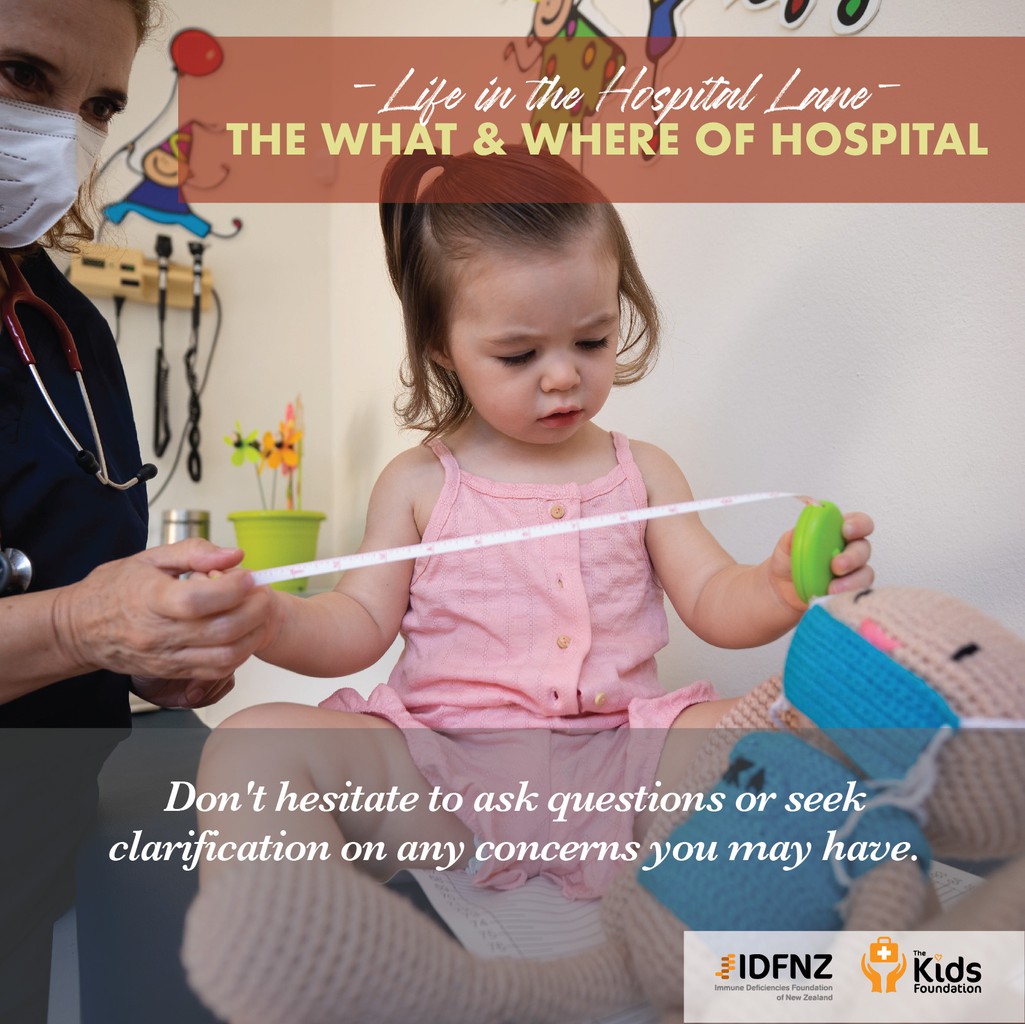The What and Where of Hospital Part 1
Mon April 1st 2024

Don't hesitate to ask questions or seek clarification on any concerns you may have.
Facing a hospital stay can be daunting, and even more so with a child. Families with children who have had lengthy stints in hospital often say how emotionally and physically challenging it can be. There has been a lot of work done within hospitals in recent years to support families and alleviate some of the challenges they face. Whether it’s a planned admission or an unexpected stay, being prepared and knowing how to navigate the unique hospital setting can make the experience more manageable. In this article, we’ll explore a range of tips and tricks specific to our hospitals in New Zealand, and our children’s hospitals to help you navigate the journey more smoothly.
Before you arrive at Hospital
If you have the advantage of knowing ahead of time of a hospital stay, you can plan accordingly. Firstly how will you get there, do you need to book flights, can you take public transport, or do you need to drive there and find suitable parking? Allow yourself time to plan, most of the hospitals throughout New Zealand have good information on their websites about parking, or you can ask the hospital liaison about the best places to park when you book your surgery/stay. Often your referral letter will have documentation about where to go and how to get there as well. If you don’t have the fore-knowledge of a hospital visit, initially just do your best to get to where you need to be quickly. The main priority is the health of your child. Take the time now if you are unfamiliar with your local hospital, to check where it is and think through the scenario of how you would get there.
If you are feeling unwell before your hospital visit, you will need to let the hospital know and reschedule your visit. While it can be disappointing to have to delay healthcare, the patient must be well before surgery, and important that they don’t spread illness to other patients.
A very basic list of what you should bring, and this will change with the type of stay you’re having and the age of your children, but the following are hospital essentials:
Appointment letter/referral
Any relevant X-rays, scans, or documentation
All current medicines and ointments you are using, and medical devices such as hearing aids
A change of clothes
Slippers, shoes, or jandals
Personal toiletries
Of course, there are many other items such as books, a phone or tablet, and a favourite toy that are especially handy when children are admitted to hospital.

Arriving at Hospital
When you arrive at the hospital and you are unsure where to go, a staff member will help you find the ward or unit required. If English is not your first language and you need an interpreter, you can request this from the receptionist.
An important foundation to make sure you get the care you need is to establish open lines of communication with the medical team. Ensure that the hospital staff; nurses, doctors, and specialists you meet with are informed about your child's condition. Communicate until you are clear on the health history, the treatment plan, and how the hospital stay will progress. Don't hesitate to ask questions or seek clarification on any concerns you may have.
Click here for part 2

